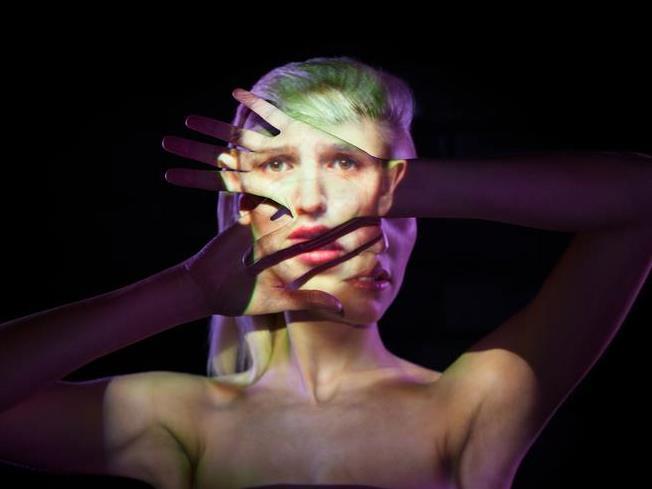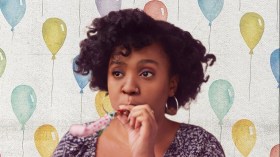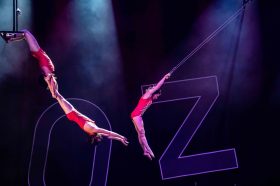Inspired by the theme of “choices” at this year’s Unscene Short Film Competition – a short film competition for emerging Australian filmmakers presented by Village Cinemas – we asked two filmmakers how they know when they’re making the right creative choices.
Entries are asked to respond to this theme, reflecting creatively on how choices have the ability to dictate our lives. In the arts and creative industries, the decisions we make in our creative work also influence what we create, and consequently our career paths.
How do you know it’s the right choice?
Jeff Bird, a filmmaker and lecturer in Film & Television at Swinburne University of Technology, said often artists create through intuition and that’s how he made his decisions when working on previous films such as Blood on the Coal and his documentary, Last Stand at Nymboida.
‘I know [it’s the right choice] when the sum total of all the parts speak with an emotional power that explores and celebrates the human spirit. This is, of course, intuitive if you’re prepared to put your pre-conceived ideas aside, as useful as they may have been in planning, and let the story and characters speak for themselves. I think it’s something we all have and it’s remarkable how artists and audiences recognise it instantly when they see and experience it,’ said Bird.
Sam Kidd, winner of the 2017 Unscene Short Film Competition for his short film Reunion, agreed, and added that working intuitively is a key part of his creative process.
REUNION from Sam Kidd on Vimeo.
‘It’s hard to ever be sure you’re making the right creative choice since it tends to be very subjective, which is why for me it’s definitely more intuitive,’ he said.
‘I always treat myself as one of my biggest audience members so if I’m entertained or feeling the emotion I’m trying to elicit from the viewers, then I know I’m doing something right. But I do also consider the opinions of selecting others to be quite important, in order to keep perspective, which can easily be lost when you’ve looked at the same script or the same edit for the 100th time.’
What happens when you make the wrong choice?
Is it ever really the wrong choice? Learning from the mistakes we make is what makes us better at our jobs in the future. Kidd recounted the time he decided, at the young age of 16, to make an apocalyptic short film that followed the lives of two men living in a basement who are slowly losing power.
‘I envisioned the whole film from a single wide shot to emphasise the passing of time through changing scenery. Unfortunately it wasn’t until I got to the editing room that I realised how boring it was.’
‘I definitely don’t regret making it as I think it’s important to keep trying out ideas and making mistakes so you know which choices not to make in the future.’
Bird also remembered a time as a young filmmaker when he got himself into creative trouble by shooting before thinking.
‘You want to get out there and do it, but if you don’t put in the planning and conceptual work, you end up following a line of choices that can lead you to nowhere,’ said Bird.
‘I think poor creative choices are a result of a lack of conceptual exploration and creative clarity as to the heart and core of story.’
Remain flexible and trust your creative instinct
Because he works mainly in documentary filmmaking, there is a necessary flexibility embedded in Bird’s practice as a filmmaker which requires him to remain open when developing a narrative and story.
‘The choices you make are often organic and evolve from an interaction between your pre-conceived ideas and the reality that you’re presented with,’ he said.
But that doesn’t mean planning goes out the window.
‘Planning and conceptual work is vital and leads you to a place that makes certain creative choices possible. But at some point there is a jumping off point, a leap of faith into the unknown, in which the power of a particular story or narrative should be able to shine through and express itself for what it is, not what you think it should be.’
This creative flexibility should work hand-in-hand with your own creative instincts, because things may not always turn out the way you plan. Kidd’s advice to other emerging filmmakers is to remain persistent and work through any issues that come up.
‘I’m currently working on this short dystopian action film called NEON which required us to shoot in Hong Kong, and we’ve definitely encountered our fair share of issues but the satisfaction the outcome produces makes it all worth it,’ he said.
‘Trust your instincts … Your content will only get better the more you create. I’ve still got a long way to go but the difference between myself now and two years ago is such a contrast.
‘And remain ambitious,’ Kidd continued. ‘It’s easy to want to take the safe route, especially in film, but I think it’s important to push yourself and your ideas and not limit yourself to your surroundings.’
Visit unscenefilms.com.au to find out more.





